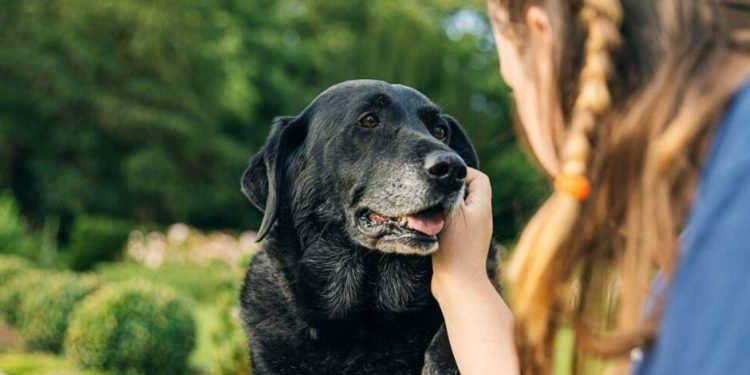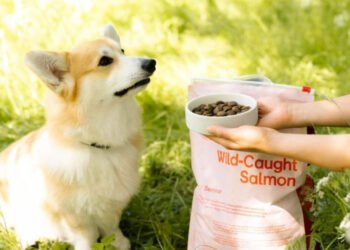Our furry friends become cherished members of our families, and it’s essential to provide them with the best care, especially as they age. Just like humans, senior pets require special attention and support to ensure they live their golden years to the fullest. As our pets age, providing them with optimal medical care becomes essential. Keeping a directory of all the veterinarians near me is a great idea to ensure your pet gets immediate medical care when needed.
In this blog post, we will explore the topic of aging gracefully in pets, focusing on caring for senior animals and promoting their overall quality of life.
Recognizing the Signs of Aging in Pets
The aging process affects every pet differently, but there are common signs that indicate your furry friend is entering their senior years. These signs may include:
- Reduced Energy: Older pets may become less active and prefer more leisurely activities over-vigorous play.
- Changes in Appetite: Senior pets may experience a decrease in appetite or changes in their eating habits.
- Weight Changes: Weight gain or loss can occur in aging pets, leading to potential health issues.
- Mobility Issues: Arthritis and joint problems can make it challenging for senior pets to move comfortably.
- Dental Problems: Dental issues such as gum disease and tooth decay become more common in older pets.
How to Provide Proper Nutrition to Your Ageing Pets?
Nutrition plays a crucial role in promoting the health and well-being of senior pets. As pets age, their dietary needs change. Here are some key considerations for providing proper nutrition to senior pets:
- Balanced Diet: Choose a high-quality senior pet food that is specially formulated to meet the nutritional requirements of older animals. These diets often contain fewer calories, higher protein content, and supplements to support joint health.
- Weight Management: Help your senior pet maintain a healthy weight by monitoring their calorie intake and providing portion-controlled meals.
- Dental Health: Opt for pet foods that promote dental health, such as kibble specifically designed to reduce plaque and tartar buildup.
- Regular Feeding Schedule: Establish a consistent feeding routine to ensure your senior pet receives meals at regular intervals.
Why are Regular Veterinary Check-ups Essential for Senior Pets?
Routine veterinary check-ups are vital for senior pets to monitor their overall health and address any potential issues promptly. Here’s why regular visits to the veterinarian are crucial:
- Early Detection of Health Problems: Regular examinations and diagnostic tests can help identify age-related diseases, such as kidney disease, diabetes, or cancer, in their early stages when treatment options are more effective.
- Vaccinations and Preventive Care: Senior pets still require vaccinations and preventive medications to protect them from common diseases and parasites.
- Dental Care: Regular dental cleanings and oral examinations are essential for senior pets, as dental problems can lead to pain, infection, and systemic health issues.
- Joint Health: Your veterinarian can assess your senior pet’s mobility and recommend appropriate joint supplements or pain management options if necessary.
Exercise and Mental Stimulation Can Help Pets Age Gracefully
Though senior pets may have reduced energy levels, regular exercise, and mental stimulation remain crucial for their well-being. Here are some tips for keeping your senior pet active:
- Adjust Exercise Routine: Tailor exercise routines to your pet’s abilities, opting for low-impact activities such as gentle walks or swimming.
- Environmental Enrichment: Provide mental stimulation through puzzle toys, interactive games, or food-dispensing toys.
- Maintain a Routine: Stick to a consistent daily routine for feeding, exercise, and playtime to provide structure and comfort to your senior pet.
Comfort and Support for Your Senior Pets
As pets age, their comfort and support become paramount. Here are ways to ensure a comfortable environment for your senior pet:
- Soft Bedding: Provide soft, supportive bedding that cushions joints and provides warmth.
- Easy Access: Ensure your senior pet has easy access to food, water, litter boxes, and comfortable resting areas. Consider ramps or steps to help them navigate stairs or elevated surfaces.
- Temperature Control: Keep your senior pet’s environment at a comfortable temperature, as older animals may be more sensitive to extreme heat or cold.
- Pain Management: Work closely with your veterinarian to manage any chronic pain or discomfort your senior pet may experience.
Caring for senior pets requires dedication, compassion, and understanding. By recognizing the signs of aging, providing proper nutrition, scheduling regular veterinary check-ups, encouraging exercise and mental stimulation, and ensuring a comfortable environment, you can help your senior pet age gracefully and enjoy a high quality of life.












